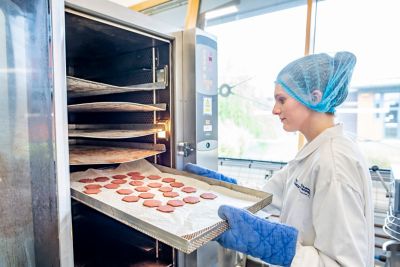For full details including fees for part-time students and reduced fees during your time studying abroad or on placement (where applicable), see our fees page.
If you are a student from the EU, EEA or Switzerland, you may be asked to complete a fee status questionnaire and your answers will be assessed using guidance issued by the UK Council for International Student Affairs (UKCISA).
Additional costs
All students will need at least one device to approve security access requests via Multi-Factor Authentication (MFA). We also recommend students have a suitable laptop to work both on and off-campus. For more information, please check the equipment advice.
As a student on this course, you should factor some additional costs into your budget, alongside your tuition fees and living expenses.
You should be able to access most of the books you’ll need through our libraries, though you may wish to purchase your own copies. If you do these would cost around £40.
Due to our commitment to sustainability, we don’t print lecture notes but these are available digitally. You will be given £5 worth of printer credits a year. You are welcome to buy more credits if you need them. It costs 4p to print one black and white page.
If you do a work placement, you need to consider the travel and living costs associated with this.
Personal laptops are not compulsory as we have computer labs that are open 24 hours a day but you may want to consider one if you wish to work at home.
Scholarships and bursaries
The University of Nottingham offers a wide range of bursaries and scholarships. These funds can provide you with an additional source of non-repayable financial help. For up to date information regarding tuition fees, visit our fees and finance pages.
International students
We offer a range of international undergraduate scholarships for high-achieving international scholars who can put their Nottingham degree to great use in their careers.
Tuition fees 2026/27 (UK undergraduate students)
This is the UK undergraduate tuition fee for the academic year 25/26. It may increase for the academic year 26/27 and we will update our information once we have received confirmation of the fee from the UK Government.
For full details including fees for part-time students and reduced fees during your time studying abroad or on placement (where applicable), see our fees page.
Additional costs
All students will need at least one device to approve security access requests via Multi-Factor Authentication (MFA). We also recommend students have a suitable laptop to work both on and off-campus. For more information, please check the equipment advice.
As a student on this course, you should factor some additional costs into your budget, alongside your tuition fees and living expenses.
You should be able to access most of the books you’ll need through our libraries, though you may wish to purchase your own copies. If you do these would cost around £40.
Due to our commitment to sustainability, we don’t print lecture notes but these are available digitally. You will be given £5 worth of printer credits a year. You are welcome to buy more credits if you need them. It costs 4p to print one black and white page.
If you do a work placement, you need to consider the travel and living costs associated with this.
Personal laptops are not compulsory as we have computer labs that are open 24 hours a day but you may want to consider one if you wish to work at home.
Scholarships and bursaries
The University of Nottingham offers a wide range of bursaries and scholarships. These funds can provide you with an additional source of non-repayable financial help. For up to date information regarding tuition fees, visit our fees and finance pages.











